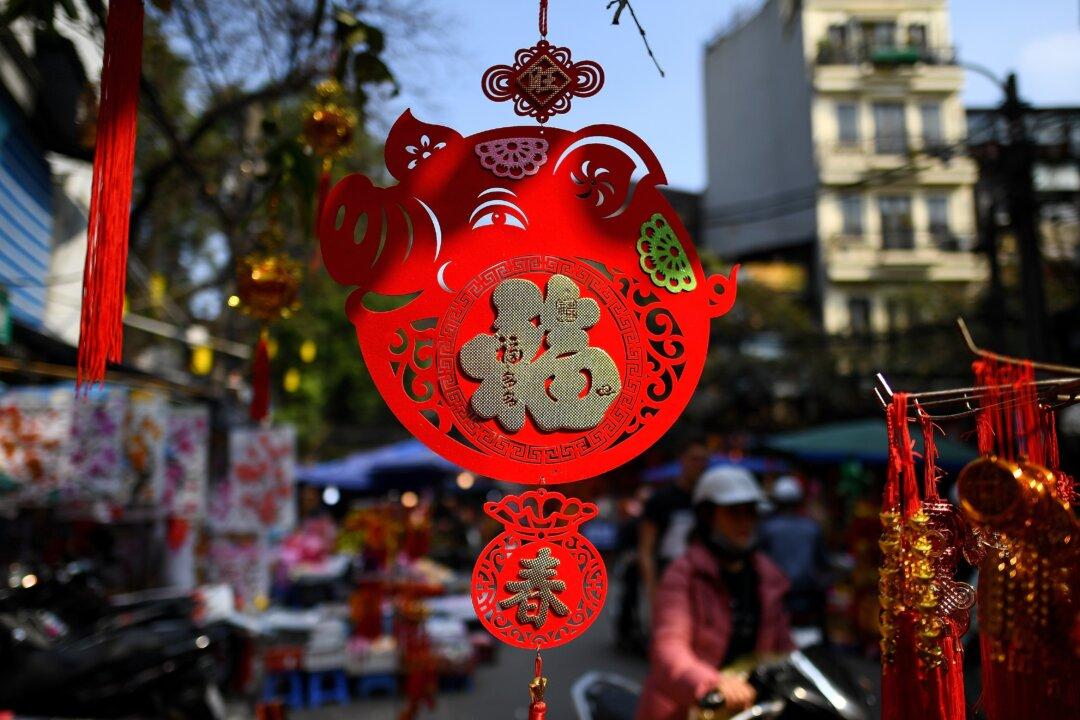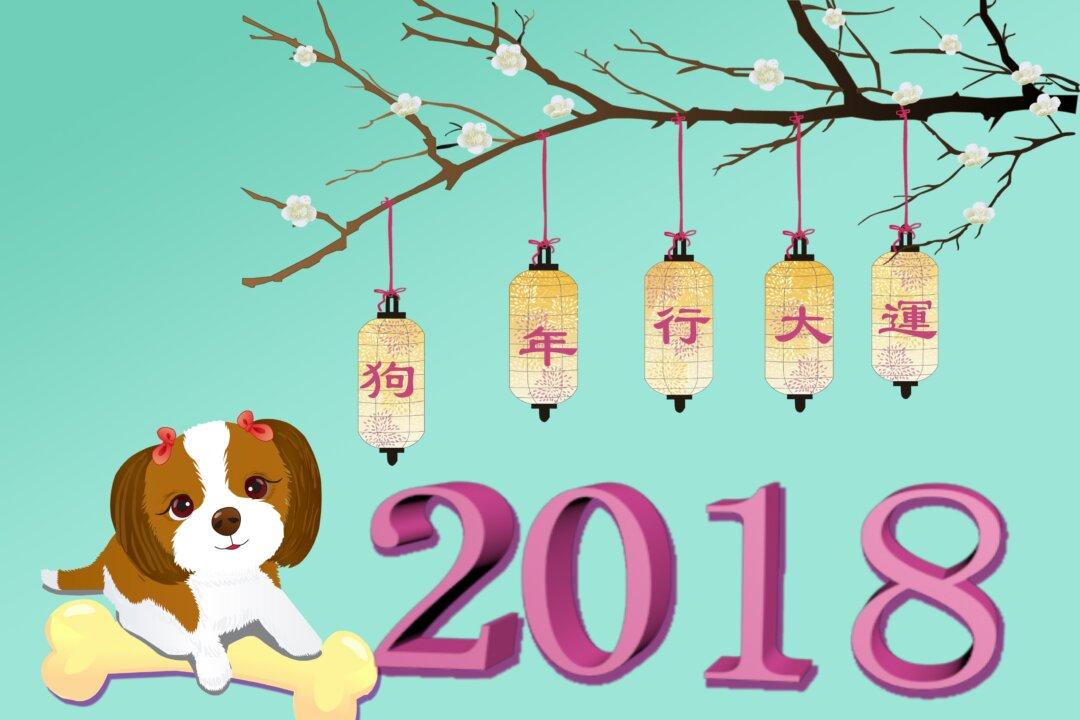The Duanwu Festival, or Duanwu Jie (端午节), is regarded as the third most important traditional Chinese festival, after the Chinese New Year and the Mid-Autumn Festival.
It always falls on the fifth day of the fifth lunar month, hence Chinese people also call it Double-Fifth Day. This year, the Duanwu Festival is Monday, June 2.
The Origin of the Festival
Over the years, the festival has been given many other names based on various local customs and celebrations. The most common name is the Dragon Boat Festival, by which it is best known in the western world.
As with many Chinese traditional celebrations, there are legends behind the Duanwu Festival. Among the many stories about the origin of the festival, the one most deeply rooted in Chinese culture is of it being in honor of the poet and statesman Qu Yuan of the Warring States period (475–221 B.C.).
As one story goes, Qu Yuan (around 340–278 B.C.) was a wise, kind, and honest court minister who did much to eliminate the corruption rampant in the state of Chu during the Warring States period.
This was a time when the seven largest individual states, Qi, Chu, Yan, Han, Zhao, Wei, and Qin, contended with each other for dominance.
Being an erudite man, Qu Yuan was trusted by the king of the state of Chu and Chu gradually became stronger with the help of Qu Yuan’s sound advice. Qu’s success, especially his ability to fight corruption, antagonized other court officials and incurred the jealousy of other ministers.
They slandered Qu Yuan and created intrigue around his career, and thus exerted their influence on the king. Consequently, the king gradually dismissed Qu’s advice and eventually exiled him.
During his exile, Qu Yuan worried very much for the state of Chu. At that time, the state of Qin had become more powerful and the Chu state was in danger. Earlier, the Chu king had ignored Qu Yuan’s advice to ally with the Qin.
One day, the Chu king received an invitation to a meeting in the state of Qin. Without Qu Yuan’s wise counsel, the king went personally to the meeting whereupon he was immediately detained. A few years later, he died while still imprisoned there.
After the death of the king of Chu, his son ascended the throne. Despite being banished, Qu Yuan hurriedly returned to the Chu state when he was recalled to the court to assist the new king.
Qu advised the new king to form an alliance with the five other strong states to resist the state of Qin, but he was again rebuffed and disgraced by the other ministers.
The new king also refused to take Qu’s advice and instead made a humiliating peace treaty with the Qin. Qu Yuan was subsequently exiled even further away than before.
Yet, Qu Yuan did not give up. He traveled extensively, teaching and writing about his ideas, hoping he could wake the king up and save the state of Chu.
In 278 B.C., the Qin occupied the capital of Chu. Seeing the fall of the Chu state, in despair Qu Yuan committed suicide by drowning himself in the Miluo River. That fateful day was the fifth day of the fifth month.
Upon learning of his death, the people of Chu felt very sad and they went to the Miluo River to pay their respects to loyal Qu Yuan.
Maintaining the integrity of the body is very important in traditional Chinese culture so, hoping to keep fish and evil spirits away from Qu’s body by disturbing the water, the fisherman hurriedly paddled out into the river in their long boats.
Some of the villagers threw zongzi (glutinous rice balls wrapped in bamboo leaves) into the river to attract the fish so that the fish would leave Qu Yuan’s body alone.
Other villagers beat drums to scare fish away. Chinese doctors poured realgar wine concoctions into the river to “poison” the monsters and to protect Qu Yuan’s body.
From that time on, people have commemorated Qu Yuan by celebrating the anniversary of his death with activities that include dragon boat races with drums, eating zongzi, and drinking realgar wine, among other activities. This is how the festival got its other names, the Dragon Boat Festival and the Zongzi Festival.
Qu Yuan is generally recognized as the first great Chinese poet and the father of Chinese poetry. The loyalty and unyielding patriotism expressed in his poems embodied Confucian ideals and, to this day, have served as a model for Chinese intellectuals.
His literary and patriotic influences have left their mark on subsequent generations in China and beyond.
Festival Celebrations
Chinese people observe many traditional customs and activities on the specified day. Dragon boat racing and eating zongzi have become the central customs of the festival.
Dragon Boat Race
Dragon boat racing is a traditional festival activity in which crews of 22 seated in long, dragon-shaped boats race lengths of up to just over a mile.
The races are an indispensable part of the Dragon Boat Festival and are held all over China and other parts of the world with large ethnic Chinese populations.
Eating Zongzi
Zongzi is a type of traditional Chinese food. They are pyramid-shaped dumplings wrapped in bamboo leaves. Zongzi is usually made of glutinous rice, stuffed with different fillings. They can be steamed or boiled. Zongzi has become an important symbol of the Duanwu Festival.
Drinking Realgar Wine
Realgar wine is a Chinese liquor seasoned with the herb realgar. It is a custom to drink the wine during the Duanwu Festival, especially after the dragon boat races.
Other Customs
In certain parts of China, parents typically dress their children up and add perfumed pouches to their finery. These pouches are hand-sewn little bags made of colorful silk cloth. They are filled with perfumes or herbal medicines, and finally strung with silk thread.
The pouches are usually hung around the children’s necks or tied to the front of their garments as ornaments. It is said the perfumed pouches are able to ward off evil.
Tying five, bright-colored, decorative rings around children’s wrists, ankles, and necks during the Dragon Boat Festival is said to help the child ward off pests.
Many people take this opportunity to clean their houses and put mugwort leaves and calamus on the top of the doors to discourage disease.
It is said that the stems and the leaves of these plants discharge a special aroma that can deter mosquitoes and flies, and purify the air, so this custom is an understandably popular one. In some areas, it is also a day for people to build up their bodies’ immunity and dispel diseases.
Some local residents make a special effort to drive away poisonous pests and other nuisances, including scorpions, vipers, centipedes, house lizards, and toads.
For 2,000 years, Qu Yuan’s patriotic spirit has influenced many people and he remains revered by Chinese people all over the world. It is certainly the driving force that makes the Duanwu Festival a great and happy time.




